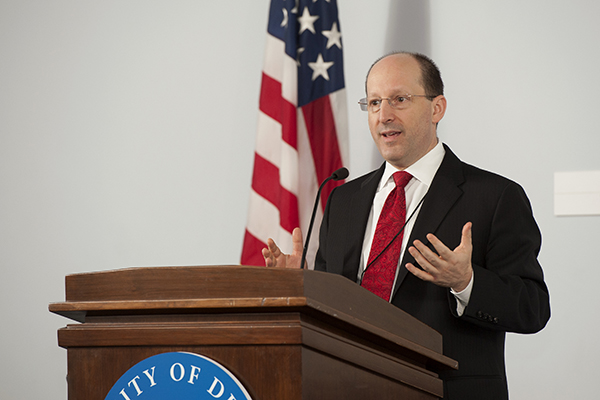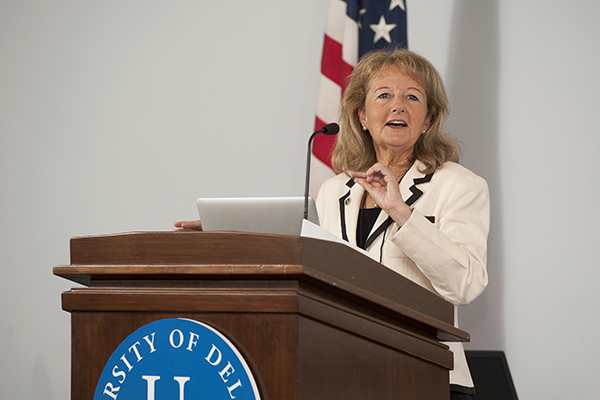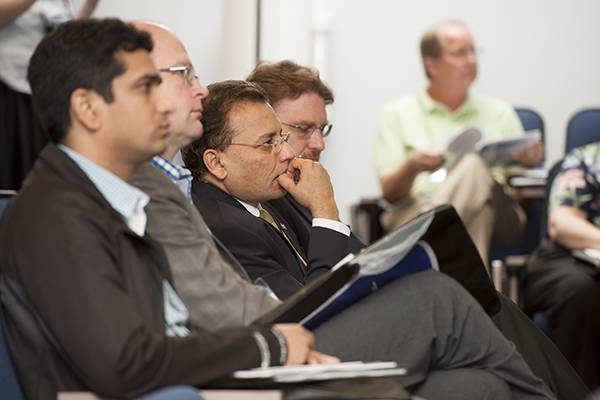


Nanomedicine Conference 2012
International symposium on nanomedicine sparks new collaborations
4:09 p.m., Aug. 27, 2012--The First International Symposium on Nanomedicine in Drug Delivery and Cancer Diagnosis, held at the University of Delaware from Aug. 16–17, not only enabled researchers to share their latest findings but also provided a venue to launch new partnerships.
“We’re very pleased about the number of collaborations sparked by the conference, including NASA’s interest in working with our faculty to develop a new chip technology for better diagnosis,” said co-chair Mary Ann McLane, professor in UD’s Department of Medical Laboratory Sciences.
Global Stories
Fulbright awards
Peace Corps plans
Another major outcome was the formation of the World Organization of Nanomedicine (WON), with the goal of organizing conferences and creating a platform for networking.
Plenary speaker Steven Libutti, professor at the Albert Einstein College of Medicine, discussed the potential for nanomedicine to improve the treatment and diagnosis of cancer and other chronic diseases. He also stressed the importance of cooperation between clinicians and basic scientists in improving health care.
Keynote speaker Kattesh Katti, director of the University of Missouri Cancer Nanotechnology Platform, shared his work on “green” nanotechnology, which is aimed at safe synthesis of nanoparticles without toxic byproducts.
Other speakers addressed topics ranging from nanotoxicology, nanomaterials, and nanodevices to cancer stem cells and drug delivery, nano-bioimaging, and nanodermatology.
“This conference was very successful in bringing together great scientific and clinical minds to promote translational work,” said Kathleen Matt, dean of the UD College of Health Sciences, “and it was a great opportunity to showcase what we’re doing here and to excite the participants about the possibilities of the STAR campus. We look forward to the next great steps.”
The next nanomedicine conference will be held in France in 2014, with the specific venue and dates to be announced.
“We’re looking forward to organizing this conference with European collaborators to make it truly global,” said conference chair Arun Kumar, assistant professor in UD’s Department of Medical Laboratory Sciences.
This year’s conference attracted attendees from eight countries in addition to the United States: Brazil, France, Germany, Iceland, India, Italy, Slovenia and Spain.
Article by Diane Kukich
Photos by Kathy F. Atkinson










